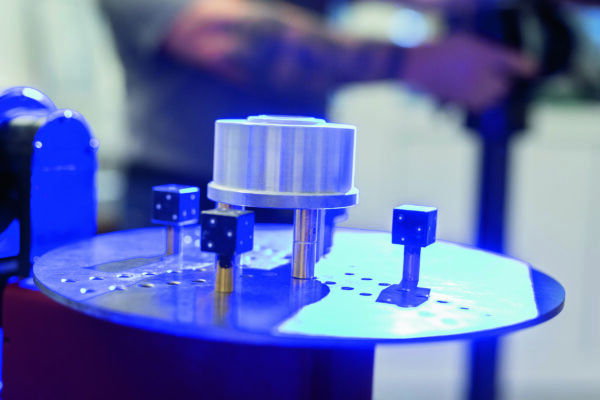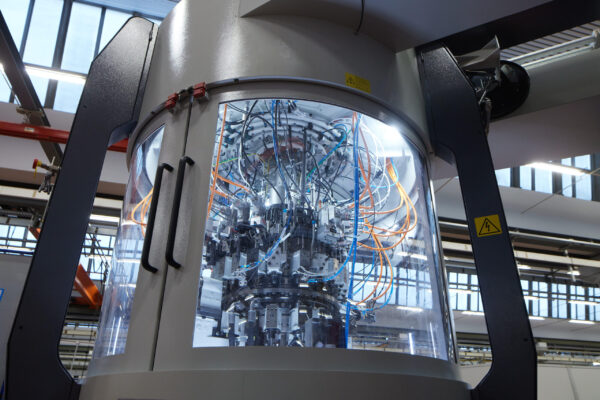Highly diversified Qatari business
Aamal Company is based in Qatar and listed on the Qatar Stock Exchange (QSE), and
is one of the largest and most diversified Qatari companies. It operates across four
key sectors: Trading and Distribution, Industrial Manufacturing, Property and Managed
Services, with 32 business units. Aamal’s diversified business sectors provide resilience
across global and regional economic cycles. The company is exposed to Qatar’s non-hydrocarbon
growth story, with government development plans such as the Third National Development
Strategy (NDS3) and Qatar National Vision 2030 looking to reduce the country’s dependence
on LNG exports, creating greater economic resilience. The government’s LNG expansion
projects are expected to be completed by end 2030 and should feed through to additional
spending for Qatar’s non-hydrocarbon sectors, which could directly benefit Aamal.
Holding company Al Faisal is Aamal’s main shareholder and one of Qatar’s leading private
companies, having played a significant role in the development of the Qatari economy
and infrastructure. Its chairman, Sheikh Faisal bin Qassim Al Thani, also chairs the
board of Aamal Company.
The company offers exposure to Qatar’s growth and development, driven by the government’s
Qatar National Vision 2030. This initiative has the potential to propel Qatar’s economic
growth. The IMF forecasts real GDP growth in Qatar of 5.9% in 2026 and 7.6% in 2027,
supported by the LNG capacity expansion projects of Qatar’s North Field deposit. The
first project phase is expected to be completed in 2028 and the second smaller phase
by 2030. This should see additional capital flow into non-oil sectors, creating gradual
growth.
Aamal focuses on sectors essential for Qatar’s economic growth, including industrial
manufacturing, real estate and healthcare, as well as other high-growth sectors such
as energy and information technology (within healthcare). The company has established
strong, market-leading positions in Qatar, continually seeking to enhance its operational
performance through further diversification, innovation and its product and service
offerings.
The company is well positioned to benefit from increasing private and public sector
demand, particularly in healthcare. The Qatari government has allocated a substantial
budget of QAR41.4bn for healthcare and education in 2025 alone, further enhancing
Aamal’s growth prospects in this sector. Aamal continues to pursue growth opportunities,
having made three acquisitions in FY24, as well as announcing, in early 2025, its
intention to establish an industrial manufacturing company in Saudi Arabia, demonstrating
its diversified growth strategy, including regional expansion.
Aamal does not have any direct listed peers operating within its markets as a result
of its dominant position in diversified businesses and Qatar-based operations.
Valuation
Aamal trades at a 26% discount to a mixture of relative peers in the MENA region,
based on FY25e EV/EBITDA multiples (12.3x vs a 16.5x weighted average for peers based
on Aamal’s FY24 revenue segment breakdown) and 15.0x FY25e P/E on our estimates, a
27% discount to peers. We value Aamal on a 50:50 blend of a DCF valuation (QAR1.17/share)
and an EV/EBITDA multiple valuation (of QAR1.26/share), implying a valuation of QAR1.22/share,
c 40% upside to the current share price.
Financials
Aamal has grown its revenues at a CAGR of 8.4% in the six years from FY18 to FY24.
Excluding FY20 when the company’s property segment margin decreased drastically due
to management’s decision to waive rents for tenants during the COVID-19 pandemic,
the EBIT margin has averaged c 20% since FY18, declining slightly in FY21–23 to 15–18%.
At the end of FY24, Aamal’s EBIT margin was at the upper end of this range (18%).
Aamal benefits from a strong balance sheet, with net debt of QAR216m at the end of
FY24 (net debt/adjusted EBITDA of 0.43x at end FY24), combined with low levels of
gearing (2.52% at end FY24). It is well capitalised, with a shareholders' equity ratio
of 89% in FY24. Organic and inorganic growth initiatives are underpinned by strong
internal cash flows (QAR229m net cash flow from operating activities and an operating
cash flow to net income ratio of 1.02x at end FY24) and the availability of debt financing
opportunities. The company also benefits from the supportive backing of its long-term
majority shareholder, Al Faisal Holding. Aamal has a strong track record of being
one of the highest dividend payers among QSE-listed companies, paying a dividend of
QAR0.05 per share in FY23, which equated to 5% or QAR315m of profit in FY22. However,
in FY24, shareholders approved a zero dividend at the AGM held in March 2024 and Aamal’s
board of directors proposed a cash dividend of 6% of share capital for FY25, amounting
to QAR378m (QAR0.06/share, a 20% increase y-o-y), representing a dividend yield of
7% on the current share price for FY25, which will be submitted for formal approval
at the AGM this year.
We introduce estimates, forecasting revenue growth of 8% in both FY25 and FY26, EBIT
of QAR447m and QAR479m, respectively, and EBIT margins of 20% in both years. Importantly,
Aamal’s strong balance sheet, net debt/adjusted EBITDA of 0.45x at end FY23 and 0.43x
at end FY24, provides it with options to fund additional growth capex in the next
three years.
Risks and sensitivities
Aamal’s diversified business model offers exposure to national growth initiatives,
balanced with significant risk factors including volatile LNG market dynamics, capital-intensive
operational requirements and regional geopolitical dynamics. Despite potential headwinds
from LNG market competition, fluctuating crude prices and ESG pressures, Aamal’s deep
integration with Qatar’s economic diversification agenda positions it to potentially
capitalise on opportunities in emerging non-hydrocarbon sectors. Its strategic resilience
hinges on its ability to manage execution risks and adapt to the evolving economic
and geopolitical landscape. According to the QSE, Aamal has no foreign ownership limit
and no maximum shareholder ownership. It has a reasonably low free float of c 30%,
as well as a relatively low trading volume, with the average number of shares traded
daily across the last year at c 1.4m (c US$330k).







































